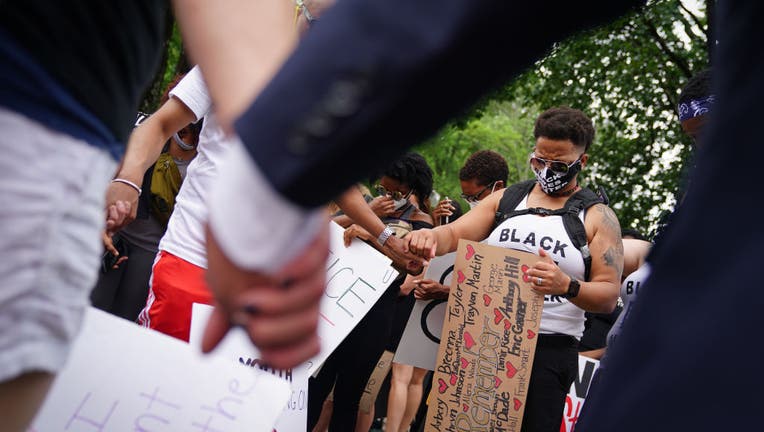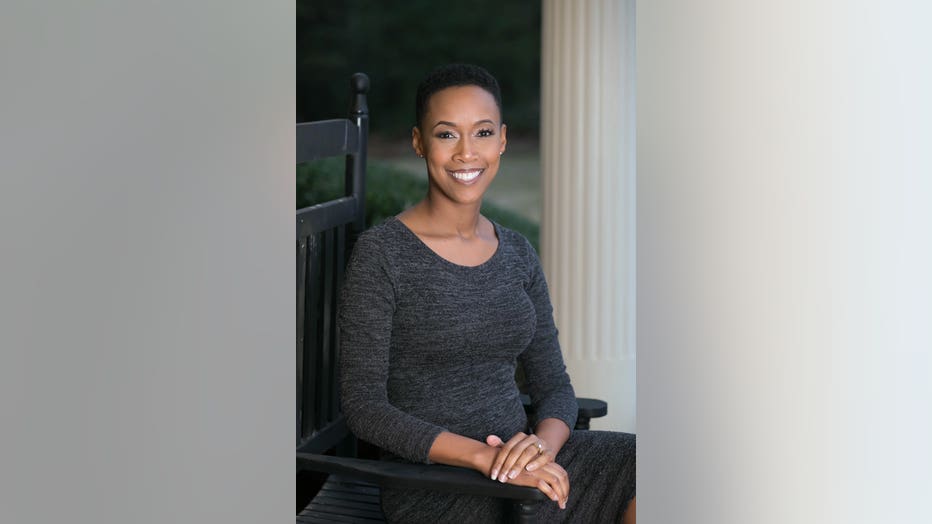'The psychology of being black': Psychologists seek to increase access to mental health services

People hold hands and pray during a protest against police brutality on June 6, 2020 in Atlanta. (Elijah Nouvelage/Getty Images)
ATHENS, Ga. - Times are hard right now, and staying healthy mentally is tough.
So some psychologists are addressing the increasing importance of prioritizing your mental health, especially after experiences of racism and oppression.
Dr. LaKeisha Gantt is a licensed psychologist and professional counselor. She always knew she wanted to help others overcome barriers in their life -- barriers she experienced growing up in poverty.
That includes access to mental health services.
“We know in the field of psychology, with African Americans and the black community, that access to mental health services is very limited," Gantt said.

Mental health stigma among black community
How the stigma of mental health among the African American community is being addressed.
Her goal is to increase access. She and a group of three Athens-based psychologists will host a Q&A session Wednesday night to discuss topics related to the stigma around mental health in the African-American community.
They titled the virtual session “The psychology of being black: prioritizing your mental health.”

Dr. LaKeisha Gantt (Shannon Johnson Photography)
“We also know there is a lot going on right now in our nation that adds to the layers that already exist and adds to some of the disparities that communities of color already experience," Gantt said. "So when I say ‘the psychology of being black,’ I mean the emotional experience, the cognitive experience, the full psychological experience of what it’s like to share a culture of blackness.”
A series of protests surrounding the death of George Floyd was the culmination of long standing feelings of unrest, grief, and anger.
“There is a psychological toll to the issues that we see happening in the African-American community, and if we don’t create those spaces, then individuals have to carry that burden alone," Gantt said.
She encourages you to reach out for help and to prioritize your mental health.
“It’s important that we care for each other," Gantt said. "This is not individual work. This is community work.”
The virtual Q&A is Wednesday, June 10 on Zoom. For more information on how to attend, you can message Dr. LaKeisha Gantt on her professional Facebook page.
Here are Gantt's top five self-care recommendations in her words:
- Understand that what we feel is not wrong.
- Talk to someone (even if not a therapist) that you feel you have a connection with. Therapy can be great but it's also important to note that many may not access therapy for many reasons. Healing does not exclusively belong to the therapy space.
- While videos can be validating in that they provide often indisputable evidence of the violence that many communities of color experience, it is also important to limit the frequency and duration of exposure to these.
- Look for online and other support groups that are available; group therapy can also be validating, less scary, and effective when centered on cultural issues.
- Talking to others, writing, or exercising or engaging activities that allow you to release current emotions and thoughts can be helpful and provide strength. Our bodies and minds can hang on to trauma (including trauma related to oppression) in ways that we are not aware of. It's important to engage in cathartic activities.

